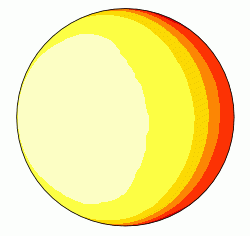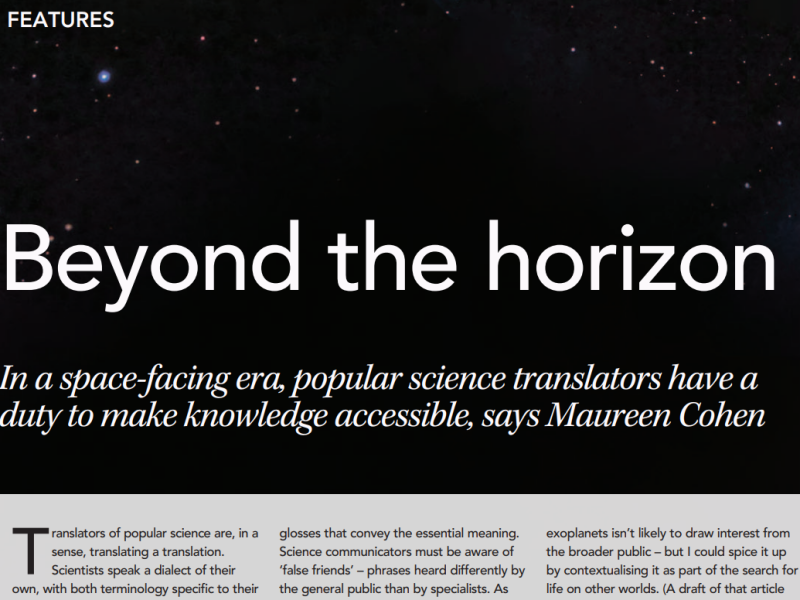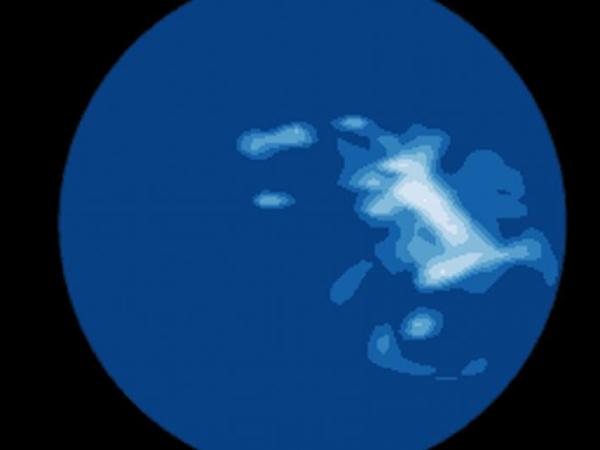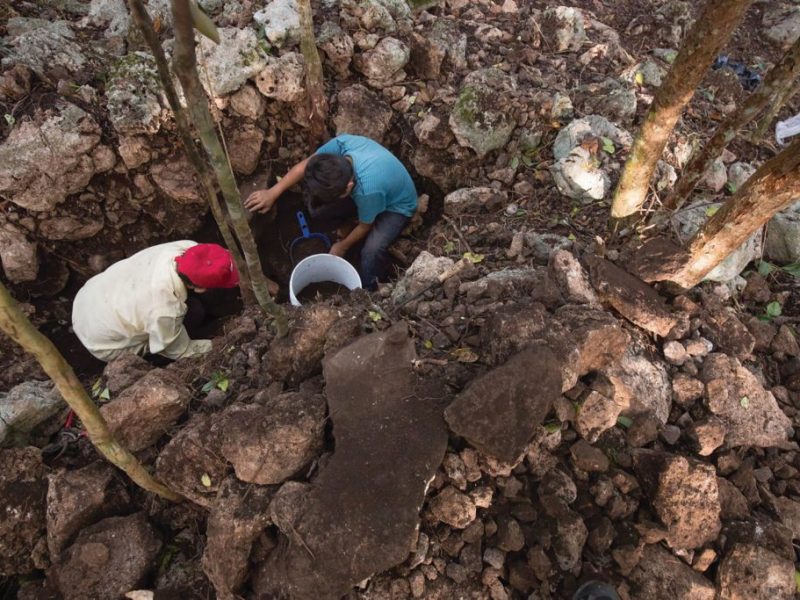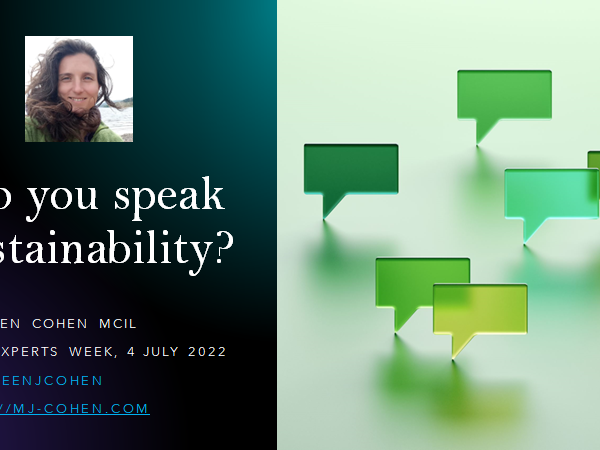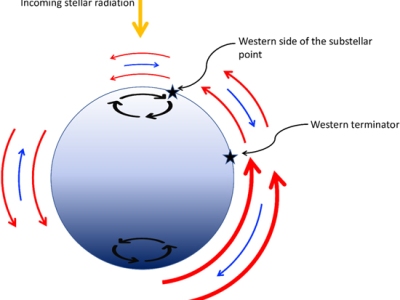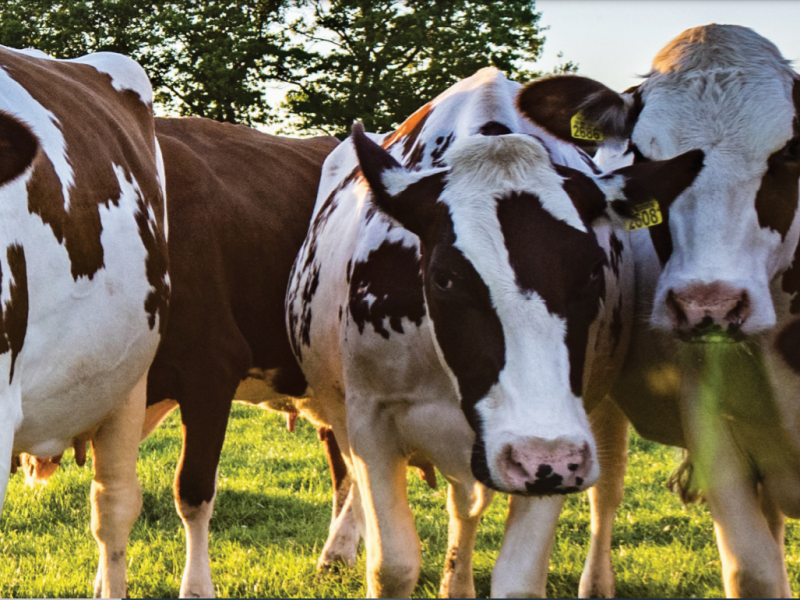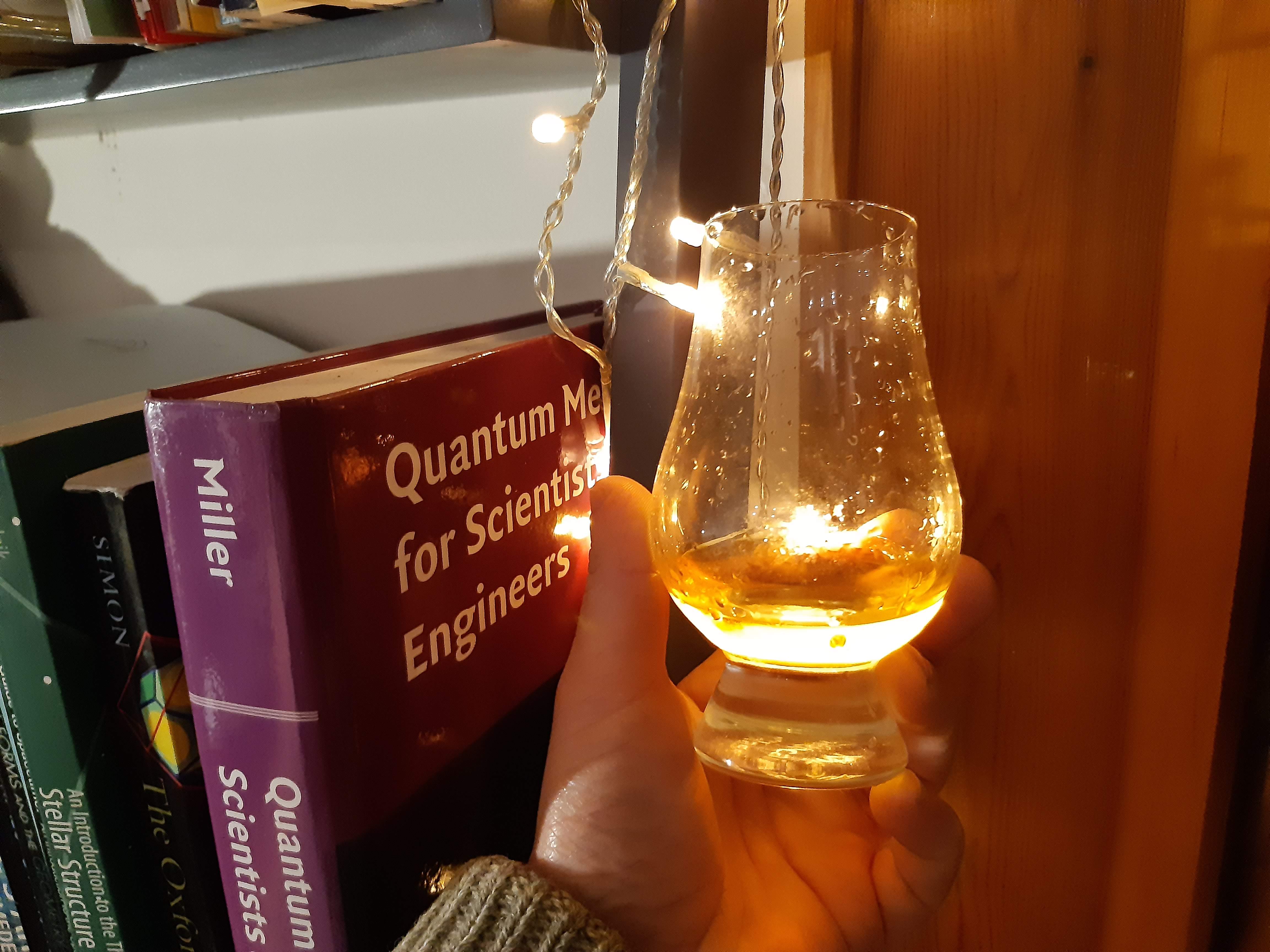
a blog by Maureen Cohen, PhD
planetary scientist @ The Open University
Beyond the Horizon (The Linguist Winter 2023)
Translators of popular science are, in a sense, translating a translation. Scientists speak a dialect of their own, with both terminology specific to their field of inquiry and a broader idiom shared by the community as a whole. Science communicators approach their subject matter with many of the same basic problems as translators: How can…
Weather patterns on Earth-like exoplanets could affect observations
Most potentially habitable rocky planets are expected to be in tidally locked orbits around small, cool stars. Just as the Moon always shows the same face to the Earth, these planets always have the same hemisphere facing their star. They do not experience day and night and, if they have little to no obliquity or…
Can we see atmospheric waves on exoplanets?
Many thanks to the KU Leuven Institute of Astronomy for hosting me to give a seminar about my research! I was lucky enough to also give this talk at the Institute for Environmental Physics at University of Heidelberg and the Institute for Planetary Research at the German Aerospace Center. Great feedback from many diverse perspectives…
What does the past mean to people today?
Our beliefs about the past help define who we are and how we live in the present. Dr Sarah Kurnick, assistant Professor of Anthropology at the University of Colorado Boulder, in the US, studies how ancient Maya peoples at Punta Laguna, Mexico, perceived their own history. The Maya who live in Punta Laguna today play a key role…
Do you speak sustainability? Webinar now available in the CIOL Webinar Library
On 4 July, I presented a webinar on the language of sustainability for the Chartered Institute of Linguists Experts’ Week. If you are a member of the CIOL, you can now download the full video from the Webinar Library (“Do you speak sustainability?”) .
Stratospheric wind and water vapour fluctuations on tidally locked exoplanets
Wind currents in the Earth’s equatorial stratosphere change direction every 26-28 months. Abundances of ozone, methane, water vapour, and other trace atmospheric gasses oscillate on the same timescale. This phenomenon is known as the “quasi-biennial oscillation” (QBO) and also occurs on other solar system planets (Jupiter and Saturn), though with different periods. It occurs because…
How sustainable is your food?
Modern food production and trade have countless impacts on the environment. Sustainable food systems are indispensable for future food security, but how can we assess the environmental sustainability of food? Dr Carole Dalin, a sustainability researcher at University College London in the UK, is developing integrated environmental indicators to track progress towards sustainable agriculture. Read the article at…
Turn off the stars: Image processing and astronomy
Picture a two-dimensional grid, like a chessboard or a piece of graph paper. Each square on the grid contains a tower of blocks. These towers come in different heights, ranging from zero to 255. “Towers” with zero blocks are black, towers with 255 blocks are white, and every number in between is a shade of…
Can mentoring help poets thrive?
How important has mentoring been in the creative industries? This is what Professor Will May from the University of Southampton in the UK is trying to determine. He has used his findings to establish Poetry Ambassadors, a mentoring programme to support young poets and help them to develop their creative abilities. Read the article at Futurum Careers!
How poverty contributes to antimicrobial resistance
Overuse of antimicrobial drugs creates dangerous resistant strains of microorganisms. Yet in some places of the world today, it is impossible to get by without them. Medical anthropologists Professor Clare Chandler and Susan Nayiga, of the London School of Hygiene and Tropical Medicine in the UK, study how conditions in Uganda force residents to rely on antibiotics on a daily…
Follow
Get new content delivered directly to your inbox.
